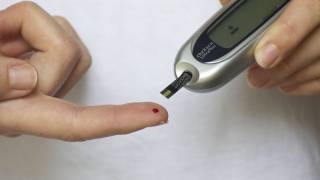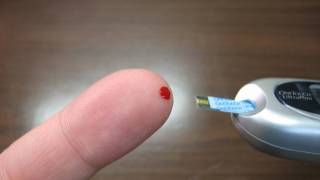Rotavirus Vaccination Decreased Type 1 Diabetes Incidence by 14%

The Rotavirus (RV) vaccine may have a surprising off-target benefit, protecting against type 1 diabetes.
According to a new analysis published in JAMA Pediatrics, new cases of the autoimmune condition decreased among children after the RV vaccine was introduced in Australia.
This is important news since there’s currently no way to prevent type 1 diabetes.
Scientists think unknown environmental exposure triggers the condition in genetically predisposed people, said this research.
If you have an autoimmune disease, your immune system attacks healthy cells in your body by mistake. There are more than 80 types of autoimmune diseases, and some have similar symptoms.
These authors previously linked rotavirus infection—the most common cause of gastroenteritis in children—to diabetes-associated antibodies in genetically susceptible kids.
In a mice study, they found that the Rotavirus triggers pancreatic cell death and transient hyperglycemia.
A rotavirus surface protein called VP7 structurally resembles pancreatic β-cell autoantigens involved in the development of type 1 diabetes, and this so-called molecular mimicry could confuse the immune system into launching an attack.
It’s therefore plausible that a vaccine against rotavirus infection could also protect against type 1 diabetes.
But, such molecular mimicry might suggest that the vaccine could promote the condition, concluded this research.
In this study, there were 16,159 new cases of type 1 diabetes in Australia during the study period.
New diabetes type 1 cases decreased by 14 percent among children up to age 4 years after the oral rotavirus vaccine for infants was introduced in 2007.
But diabetes type 1 cases didn’t decline in older kids, most of whom weren’t immunized with the RV vaccine.
“If our findings are confirmed, they would indicate that rotavirus infection is one environmental factor that can promote the development of type 1 diabetes in genetically susceptible children,” said senior author Leonard C. Harrison, MD, of the Walter and Eliza Hall Institute of Medical Research in Melbourne, Australia.
“The corollary is that rotavirus vaccination would prevent type 1 diabetes in a proportion of these children,” he added.
But, a small case-control study in Finland involving just 495 children didn’t reveal the same link.
As the Australian authors wrote in their study, “It is possible that response to RV vaccination could vary by geographical location owing to genetic and environmental differences at the population level.”
The Australian researchers are working to validate their findings in a case-control linkage study using electronic health records. The results should be available in late 2019.
Our Trust Standards: Medical Advisory Committee















